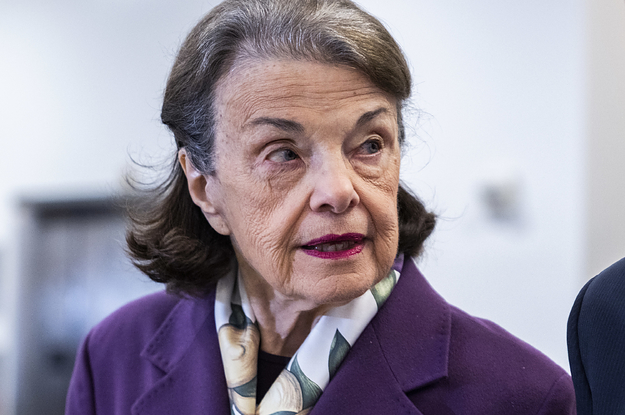Senator Dianne Feinstein, who has been under pressure to resign from her seat, announced that she plans to temporarily step away from the Senate Judiciary Committee due to ongoing health issues. The 89-year-old California Democrat has been absent from the Senate since February after being diagnosed with shingles. During her absence, she has missed 58 votes. Despite working from home to recover, concerns were raised about her continued absence potentially halting work in the committee. As the oldest member of Congress, Feinstein’s decision has significant implications for the Biden administration’s efforts to confirm federal judges.
The Democrats, who narrowly lost control of the House of Representatives in the midterm elections, have been relying on their Senate majority to continue confirming federal judges. However, with the slim majority, the Judiciary Committee has not been able to vote on any new nominees since February. If there is a tied vote in the committee, the nominee cannot advance to a full Senate vote. Senator Dick Durbin, the chair of the Judiciary Committee, expressed his concerns about the inability to move forward with new nominees without Feinstein’s return.
Feinstein, in a statement, mentioned that she had expected to return to work by the end of March but faced continued complications that prevented her from doing so. She expressed her commitment to the job and stated that she would continue working from home in San Francisco. Acknowledging the complications her absence has caused for her colleagues, Feinstein requested Senate Majority Leader Chuck Schumer to appoint another Democrat temporarily to the committee.
This announcement comes at a critical time for the Biden administration, as they face pressure to fill federal judicial vacancies. The Democrats are aware of the importance of utilizing their Senate majority to confirm judges, especially after losing control of the House. With President Biden’s policy agenda at stake, the absence of Feinstein in the Judiciary Committee has raised concerns about the delay in confirming new nominees.
Feinstein’s decision to temporarily step away from the committee reflects the challenges faced by aging politicians and the impact it can have on their ability to fulfill their duties. At 89 years old, she is the oldest member of Congress and has been in office for over 30 years. While her absence is due to health issues, it highlights the need for succession planning and the importance of having backup plans in place to ensure the smooth functioning of government bodies.
In the meantime, the appointment of a temporary Democrat to the Judiciary Committee will help alleviate some concerns about the delay in confirming new nominees. However, it remains to be seen how long Feinstein’s absence will last and whether it will have long-term implications for the committee’s work. The Biden administration will need to navigate this challenge and find a way to continue confirming federal judges to advance their policy agenda while respecting the health and well-being of their senators.









